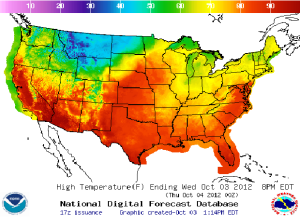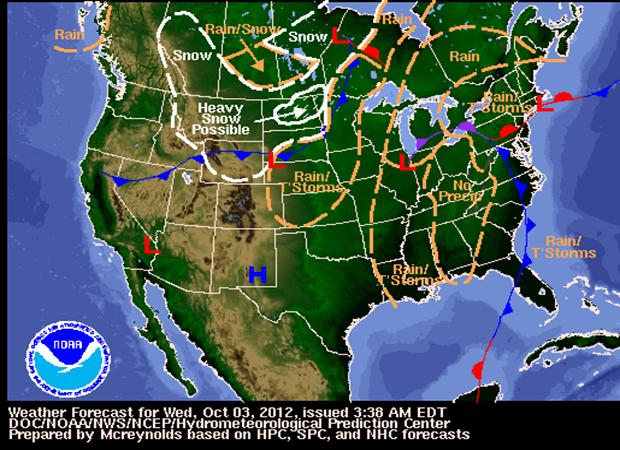Katrina, Isaac, Dean, and Felix: No, they’re not the names of your fellow Urban students. They’re the names of four devastating hurricanes that have occurred in the United States during the last 10 years, causing billions of dollars in damage.
Unfortunately, hurricanes aren’t the only weather events that have been taking place with what appears to be increasing frequency over the past decade. Tornados, droughts and floods have caused ordinary Americans and researchers to speculate about the cause of these natural disasters.
At the University of Alabama in Huntsville, the Department of Atmospheric Science has spent 10 years chasing tornados around the southeastern U.S. with a converted ambulance. Researchers use Mobile Alabama X-Band Radar, a Mobile Integrated Profiling System, and a Mobile Meteorological Measurement Vehicle.
The increasing frequency of bad weather events isn’t necessarily a bad thing — for University of Alabama academics, it’s more fieldwork. However, Anthony Lyza, research assistant for the Severe Weather Group at the Department of Atmospheric Science, believes that the recent spell of severe weather is just bad luck.
Last year —, a year that resulted in 553 fatalities from tornados — “was not unprecedented — 1953 and 1974 were similar years,” said Lyza. In 1953, the so-called Waco Tornado Tragedy hit all over the southwest, resulting in 144 deaths and 1974, with more severe tornados rated F4 and F5 than ever recorded.
According to Lyza, the reason why recent weather events seem so extreme is because severe storms and tornados have hit areas of greater population than in years past, causing more loss of human lives and property.
“The only major hurricane to hit the United States was Hurricane Opal (in 1995),” Lyza said, and that touched down in the then relatively unpopulated Florida Panhandle.
As the impact of bad weather has increased, weather tracking has become more prevalent. The University of Alabama has an entire department devoted to severe weather and atmospheric science, including tracking and predicting where it will hit.
Though Lyza doesn’t believe that our weather is getting worse, others disagree. Sarah Clowes, Urban’s Green Team faculty adviser, said that “polluting the environment, disrupting ecosystems and (using) fossil fuels” are to blame for a warming trend that turns small storms into big ones.
“As we emit greenhouse gases into the atmosphere, we change the climate and how water moves,” Clowes said.
Similarly, many scientists’ global warming models have predicted extreme storms and droughts. A senior scientist at the National Center for Atmospheric Research claimed in the September issue of National Geographic that “greenhouse gases are the steroids of the climate system.”

Though global warming may not be the only reason for severe weather, a significant number of scientists agree that it is making typhoons and hurricanes dramatically worse. As the climate heats up, more water vapor is produced, resulting in more severe hurricanesand longer rainstorms. Besides the increase in water vapor, the climate has gone up almost one degree Fahrenheit. Seems small, right? But scientists say this is enough of a climate change to increase the extent of wildfires and droughts.
There has been a 25 percent increase in cost of disasters since 2011, according to “Weather Gone Wild,” in the September 2012 issue of National Geographic. Whether bad luck or global warming causes it, one thing seems certain: severe weather has become the new normal. “We can expect more severe weather,” Clowes said.

